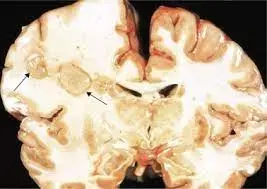- Home
- Medical news & Guidelines
- Anesthesiology
- Cardiology and CTVS
- Critical Care
- Dentistry
- Dermatology
- Diabetes and Endocrinology
- ENT
- Gastroenterology
- Medicine
- Nephrology
- Neurology
- Obstretics-Gynaecology
- Oncology
- Ophthalmology
- Orthopaedics
- Pediatrics-Neonatology
- Psychiatry
- Pulmonology
- Radiology
- Surgery
- Urology
- Laboratory Medicine
- Diet
- Nursing
- Paramedical
- Physiotherapy
- Health news
- Fact Check
- Bone Health Fact Check
- Brain Health Fact Check
- Cancer Related Fact Check
- Child Care Fact Check
- Dental and oral health fact check
- Diabetes and metabolic health fact check
- Diet and Nutrition Fact Check
- Eye and ENT Care Fact Check
- Fitness fact check
- Gut health fact check
- Heart health fact check
- Kidney health fact check
- Medical education fact check
- Men's health fact check
- Respiratory fact check
- Skin and hair care fact check
- Vaccine and Immunization fact check
- Women's health fact check
- AYUSH
- State News
- Andaman and Nicobar Islands
- Andhra Pradesh
- Arunachal Pradesh
- Assam
- Bihar
- Chandigarh
- Chattisgarh
- Dadra and Nagar Haveli
- Daman and Diu
- Delhi
- Goa
- Gujarat
- Haryana
- Himachal Pradesh
- Jammu & Kashmir
- Jharkhand
- Karnataka
- Kerala
- Ladakh
- Lakshadweep
- Madhya Pradesh
- Maharashtra
- Manipur
- Meghalaya
- Mizoram
- Nagaland
- Odisha
- Puducherry
- Punjab
- Rajasthan
- Sikkim
- Tamil Nadu
- Telangana
- Tripura
- Uttar Pradesh
- Uttrakhand
- West Bengal
- Medical Education
- Industry
Recent invasive dental procedures not associated with risk of brain abscess: Study

Dentists' visits are not associated with the risk of brain abscess, according to a recent study published in Clinical Infectious Diseases.
Brain abscesses are frequently caused by oral cavity bacteria, but whether dental status and invasive dental procedures are important risk factors is unknown.
A nationwide, population-based, case-control study examined the association between dentist's visits and invasive dental procedures and the risk of brain abscess caused by oral cavity bacteria from 1989-to 2016. The date of brain abscess diagnosis was considered the index date. Using risk-set sampling, 10 population controls per case were individually matched by age, sex, and residential area. Conditional logistic regression was used to compute odds ratios (OR) with 95% confidence intervals (CIs), adjusted for comorbidity (aOR).
Results of the study are:
The researchers identified 362 patients with culture-proven brain abscesses caused by oral cavity bacteria. The median age was 53 years (IQR 39 - 65) and 220/362 (61%) were male. Invasive dental procedures within six months before the index date was observed in 21/362 (6%) brain abscess patients and 179/3257 (5%) population controls yielding an aOR of 1.07 (95% CI 0.67-1.70). A total of 213/362 (59%) brain abscess patients had visited their dentist within one year before the index date compared with 1944/3257 (60%) of the population controls corresponding to an aOR of 0.99 (95% CI 0.77-1.26). Using no dentist's visits as a reference, we observed aOR's of 0.95 (95% CI 0.64-1.40) for 1-2 visits within three years of the index date and 1.01 (95% CI 0.76-1.35) for 3 or more visits.
Thus, the researchers concluded that the recent invasive dental procedures and number of dentist's visits were not associated with culture verified brain abscess caused by oral cavity bacteria.
Reference:
Dentist's visits and risk of brain abscess: a nationwide, population-based case-control study by Jacob Bodilsen, et al. published in the Clinical Infectious Diseases.
https://academic.oup.com/cid/advance-article-abstract/doi/10.1093/cid/ciab1054/6490156
Dr. Shravani Dali has completed her BDS from Pravara institute of medical sciences, loni. Following which she extensively worked in the healthcare sector for 2+ years. She has been actively involved in writing blogs in field of health and wellness. Currently she is pursuing her Masters of public health-health administration from Tata institute of social sciences. She can be contacted at editorial@medicaldialogues.in.
Dr Kamal Kant Kohli-MBBS, DTCD- a chest specialist with more than 30 years of practice and a flair for writing clinical articles, Dr Kamal Kant Kohli joined Medical Dialogues as a Chief Editor of Medical News. Besides writing articles, as an editor, he proofreads and verifies all the medical content published on Medical Dialogues including those coming from journals, studies,medical conferences,guidelines etc. Email: drkohli@medicaldialogues.in. Contact no. 011-43720751


